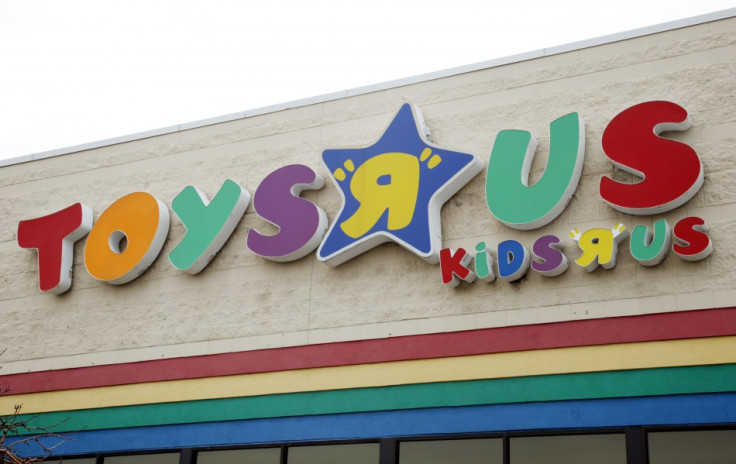Toys R Us sales woes may have been sign of what was to come
The toys outlet, which runs around 1,600 stores, filed for Chapter 11 bankruptcy protection this month.
Toys R Us, trying to reorganise under bankruptcy leading into the holiday season, was seeing overall sales fall and those at established locations drop even more sharply as it was heading for a Chapter 11 filing.
Weaker sales illustrated the difficulty the retailer was having amid more intense competition from businesses such as Amazon and Walmart that can offer lower prices. Toys R Us was already hamstrung by $5bn (£3.71bn) in debt.
The toy retailer that also owns the Babies R Us chain says that for the three months ended 29 July, sales fell to $1.46bn from $1.56bn. Even more telling was its same-store sales, considered a key indicator of a retailer's health. That figure tumbled 6.4% in the quarter.
A year earlier, those sales edged up 0.5%. Toys R Us said the same-store sales decline was due to softness in the US and Canadian markets. Domestically, same-store sales fell 6.8% from a year earlier, and in Canada they declined 3.3%.
Weaker sales illustrated the difficulty the retailer was having amid more intense competition from businesses such as Amazon and Walmart that can offer lower prices.
Toys R Us, which runs around 1,600 stores, filed for Chapter 11 bankruptcy protection this month as it heads into the all-important holiday season, which makes up around 70% of annual toy sales. Toys R Us has said that it has received $3.1bn in new financing that will allow it to pay its employees and suppliers through the period.
Aside from its sales woes, the Wayne, New Jersey, US-headquartered company has struggled with debt since private-equity firms Bain Capital, KKR & Co. and Vornado Realty Trust took it private in a $6.6bn leveraged buyout in 2005.
The plan had been to take the company public, but that never happened because of its weak financial performance. And the debt meant Toys R Us couldn't invest in its business.

© Copyright IBTimes 2025. All rights reserved.





















